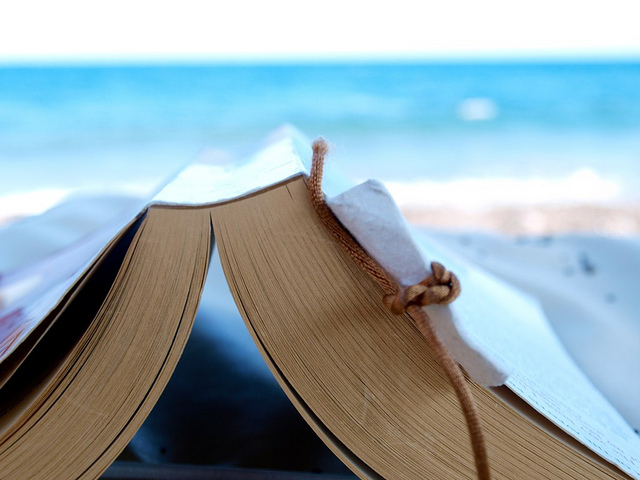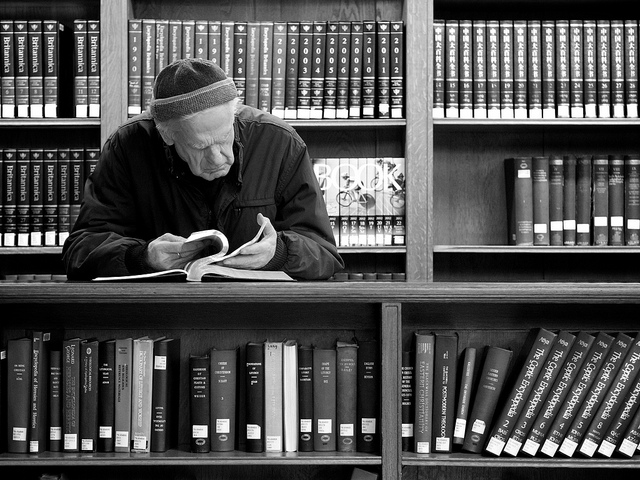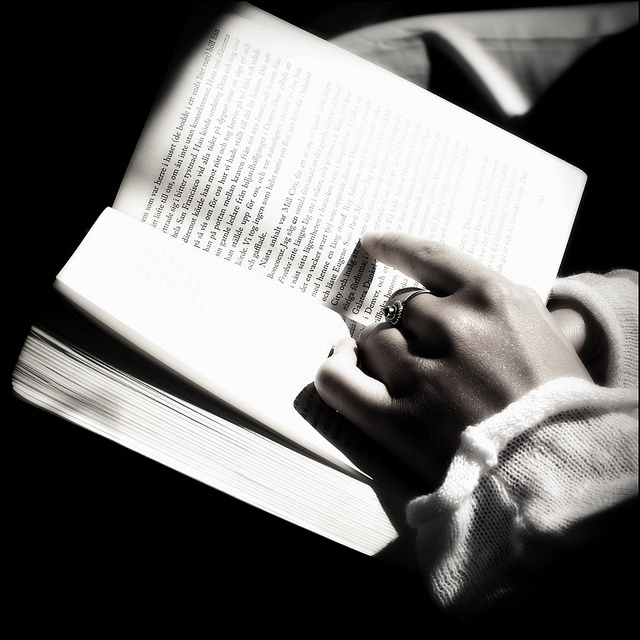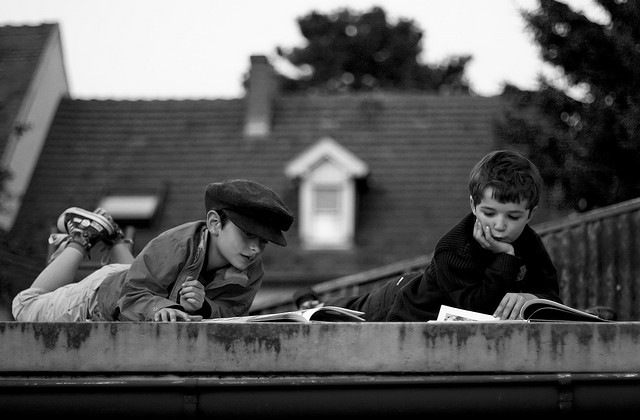A Good Read: The Importance of Finding Teachers and Mental Renewal in Literature
There was an evening in March 2014 when the gloom inside me seemed to spill over Rotterdam’s overcast sky. I dawdled back home through the empty street, gripping the black woolen scarf tied over my long grey jacket, shivering against the biting wind. I was not happy. An unsettling voice inside me told me that my train had derailed because work had become hungry leeches, instead of joy; it started to feel like to endless days putting letters in bottles, releasing it to the ocean, not knowing if anything would ever return. And balance, my value, was at stake.
There were many evenings like that when I stood in front of an invisible brick wall. Whenever that brick wall shows up, instead of unwinding with a beer or venting with a friend, I would come home and do one thing. Find the best book about the subject and start reading. That same evening, I found “Essentialism – The Discipline Pursuit of Less” by Greg McKeown. This book changed my work and my life.
Talking about the importance of reading. Neil Gaiman, in his annual lecture at The Reading Agency on the future of reading and library, said: “Books are the way that we communicate with the dead. The way that we learn lessons from those who are no longer with us, that humanity has built on itself, progressed, made knowledge incremental rather than something that has to be relearned, over and over.”
I couldn’t agree more and couldn’t find better way to express the significance of book as learning instrument that pushes humankind forward. Most of my knowledge is acquired through reading, most of my skills were developed by practicing the knowledge I learnt from reading.
From daily mundane like cooking, organizing the house, spending money; to work-related skills such as using Evernote, managing time, building relationship, selling, leadership, coaching; to curing personal disorder, for example: over-shopping, over-worrying; to philosophical topics: religion, death, happiness, love. All of them, and many more, could be learnt by reading. I love literature! So much that on my birthday my team gave me a stack of 7 books and coupons to buy more.
In solitude hours of reading, I found teachers. Stephen R. Covey taught me to shape the right habits to achieve my goals. David Allen taught me to organize an efficient work flow. Neil Rackham taught me to build relationship and sell an idea. Malcolm Gladwell taught me to see the world and human psychology in layers of depth, with all its dimensions and complexity. Brene Brown taught me to treat myself with love and tenderness. Paulo Coelho taught me to surrender to love, to my authentic self, to my dream. The list could go on.
Speaking of teachers and learning. I like to help young people; it had been all that I did over the past 5 years. And because I’m lucky to have some experience, many of them sought me for advice, which I gave with enthusiasm and honesty each time. However when I have a moment afterward to think about that conversation, I often regret that I didn’t respond to them with the same question:
Did you read about it?
A book is the best. However, reading few good personal essays or some tips showed up on Google is still better than showing up with an empty stomach. Had they applied lessons from great minds in their own context, they could’ve come up with a solution on their own, or a hypothesis, or a better question. In situations where, lucky for them, I remember to ask the magic question, even suggest a book or two. Most of them look back at me with surprise, a few with a sense of betrayal or hopelessness, as if I asked them to jump off the bridge. One big thing I learnt in life is that there is no free lunch, hardly any short-cut; and all meaningful things take time.
Good literature works differently from a one-off advice. When we listen to advice, our ears absorb how others do things. When we read good literature, we are invited to the author’s world; we get to experience what he or she experienced. Good literature requires time, patience, attention, genuine curiosity to fall deep in the subject. Good literature contains dots that we might connect differently on your first, second, third read. However, the wisdom that we reveal to ourselves in each read is most true, most applicable at that stage of awareness. A good reader will let go of herself, plunge to another world and see through the author’s eyes. Which, I guess, are rather difficult to ask for from busyness, egotistic, or leisure-oriented individuals. But only a long, vigorous adventure make us coming back slightly changed. Doesn’t it?
Often when I asked people if they liked to read, they would tell me that they did, but had no time, to which I think - similarly to exercise – we don’t have time not to read; or that they prefer to learn by doing rather than by reading. Well, I find the latter funny, because there is no contradiction whatsoever between doing and reading. Reading doesn’t stop us from learning by doing; reading helps us avoid wasting time re-learning what had been learnt, so that we can do smarter, make new mistakes, and if we are lucky, have new discoveries, to push humankind forward. Sadly, reading are considered “theoretical” by many. And I think of how Paulo Coelho has taught me more about love and make me a better lover through his writing than any man had ever done.
Nowadays it’s so easy to neglect reading for all the fast, cool things brought by television and the internet. Stephen R. Covey, the teacher of teachers of successful people, showed deep concern in his classic “7 Habits of Highly Effective People” - on our downhill tendency toward mental renewal:
“as soon as we leave the external discipline of school, many of us let our minds atrophy. We don’t do any more serious reading, we don’t explore new subjects in any real depth outside our action fields, we don’t think analytically, we don’t write – at least not critically or in a way that tests our ability to express ourselves in distilled, clear, and concise language. Instead, we spend our time watching TV.”

(Dr. Stephen R. Covey)
I am convinced that his sigh would’ve been louder, had he lived longer to see all the stuffs that we now can indulge in. Covey said “when we watch, we’re subject to all the values that are being taught through it. That can powerfully influence us in very subtle and imperceptible ways”.
He urged us to realize “the dependent sickness of becoming addicted to soap operas or to a steady diet of a particular program” because despite being grateful for what television could offer, he thought that “there are many programs that simply waste our time and minds and many that influence us in negative ways if we let them.”
He emphasized that “it is so valuable to read broadly and to expose yourself to great minds. There’s no better way to inform and expand your mind on a regular basis than to get into the habit of reading good literature.” And he concluded his point in an assailable way:
The person who doesn’t read is no better off than the person who can’t read.
Even though this article is written about the importance of reading; I’d like to underline that we should not consider any books or essays as the holy manual of living. As written above, a good reader let go of herself to experience the world offered by the author. It is equally important that the same reader keep herself anchored to her own conscience. She needs to pay attention to her inner voice throughout the ride in another person’s world. I have read international bestsellers and put down before finishing the foreword. Sometimes, the famous author didn’t speak the same language as my conscience. My conscience backed off, and I followed it.
Nevertheless, in most of my rides, I find things that ring true to me. Passages that left me startled by its insight, righteousness, and beauty. Sentences that left me relieved by encapsulating it so eloquently what I always felt but didn’t quite figure out how to say. Words that left me in awe by inventing a whole new world full of colors and shapes and tastes and sounds and touches.
I can not find a better way to end this article than borrowing words from Anne Lamott:
“What a miracle it is that out of these small, flat, rigid squares of paper unfolds world after world after world, worlds that sing to you, comfort and quiet or excite you. Books help us understand who we are and how we are to behave. […] They show us what community and friendship mean; they show us how to live and die. My gratitude for good writing is unbounded; I’m grateful for it the way I’m grateful for the ocean. Aren’t you?”
What about you?
Which books are you reading?
What is the book that most influenced you?
Send an email or leave a request on A Learner’s Journal wall if you’d like book recommendations.
- - -
Photo Credit: Moyan Brenn




